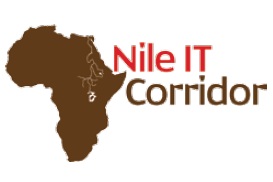Egyptian Ministry announces Nile IT Corridor project, newsletter
As part of Egypt’s push to become a leader for African ICT training, the Ministry of Communications and Information Technology, known as MCIT, has started a semi-annual newsletter to stakeholders. MCIT explains:
In light of the national policy towards enhancing cooperation with Africa, MCIT has made successful steps towards achieving this goal. In this context, MCIT has launched the first issue of “Nile IT Newsletter”, which will be published quarterly to include all activities taking place with African neighbors. It will also put emphasis on that status of the ICT sector within Africa, whether on the bilateral or the regional levels. In addition, the newsletter will provide briefs on the business sector activities; and windows on new channels for cooperation in areas such as: ICT Tenders in Africa, ICT Vacancies in Africa, and ICT Awards in Africa.
The top story in this quarter’s issue is a planned Nile IT Corridor initiative that will establish a cross-border IT park covering the Nile Basin nations. Expect the Nile IT Corridor portal to go live in a matter of weeks.
Also in the newsletter are a selection of stories on how Egypt is partnering with neighboring nations to improve ICT applications:
- Pilot training for a new e-learning project was conducted in Sudan.
- BPO training is taking place in Uganda.
- Egypt and Kenya have met twice in recent months to cooperate on ICT policy.
- In January 2012, Egypt and Ethiopia met to discuss communications regulations, smart villages, e-government, cyber security, and other issues.
- MCIT has started capacity building programs in Eritrea and Burundi.
We’re excited to see Egypt emerging as a leader in the region, especially during a period of political transition. After all, Egypt has one of the largest economies in Africa and boasts the second highest number of Internet users of any African nation (behind Nigeria). To date, much ICT knowledge transfer has been between Egypt and North Africa (and not necessarily East Africa). It will be interesting to see how Egypt interacts with its non-Arab neighbors to build a better-connected continent.













 Twitter
Twitter Facebook
Facebook Pinterest
Pinterest